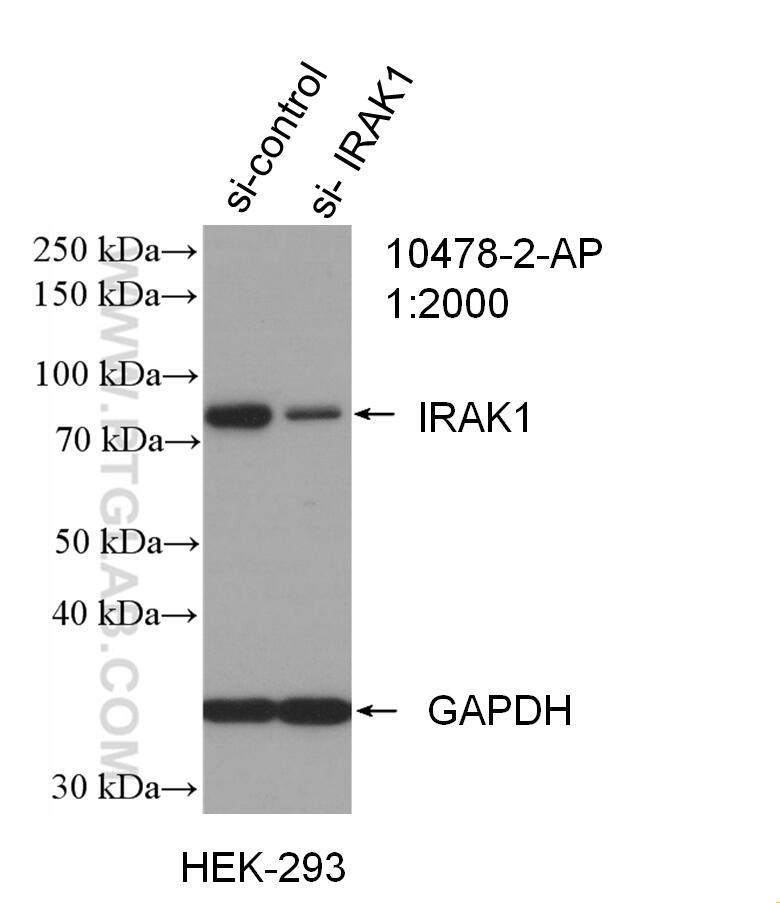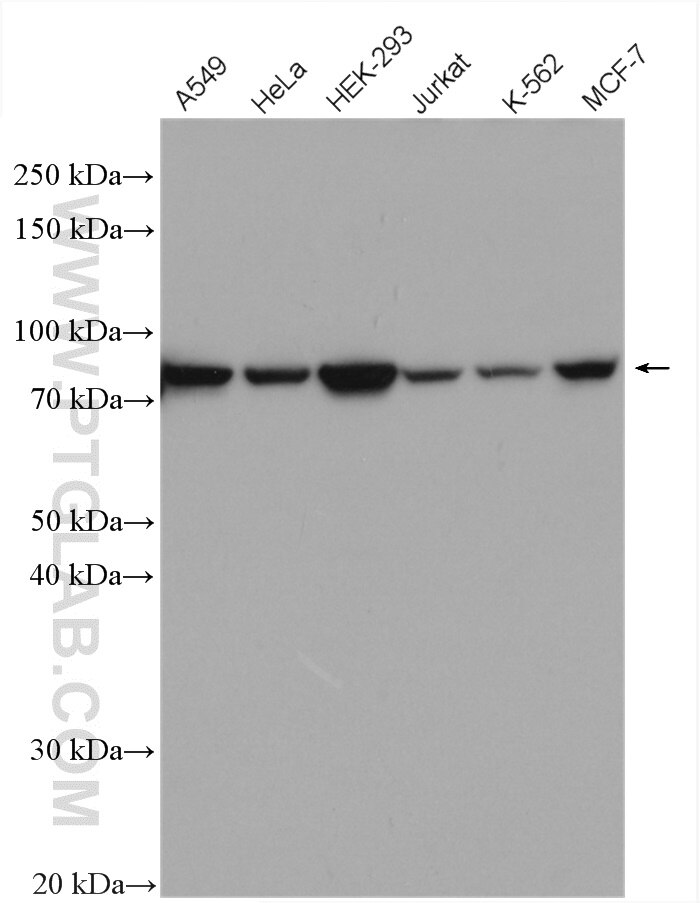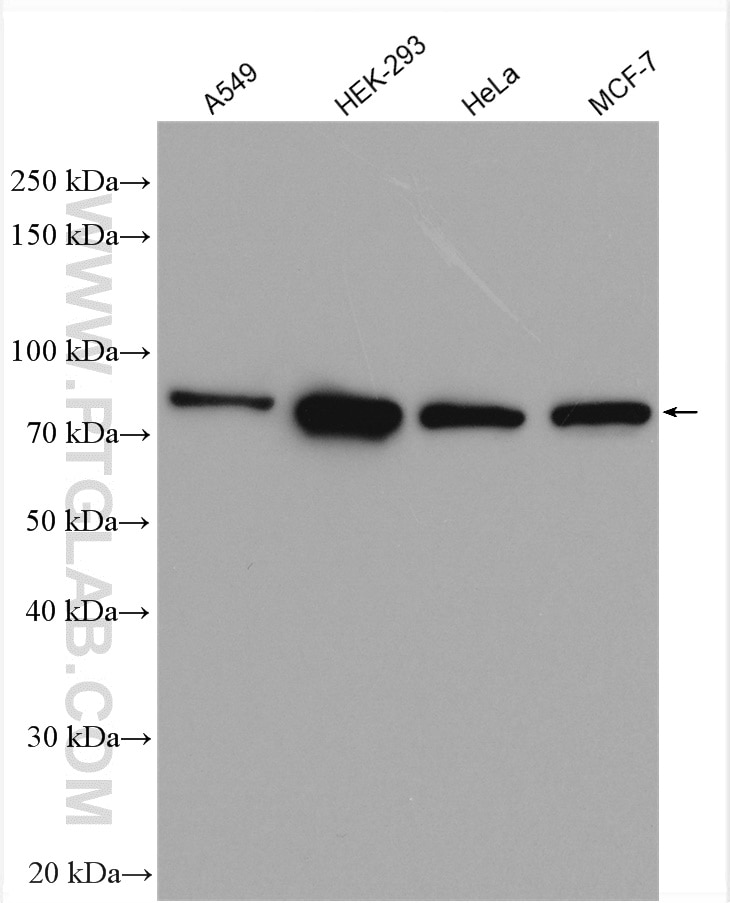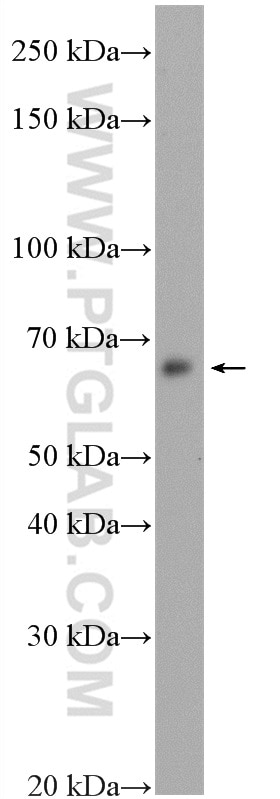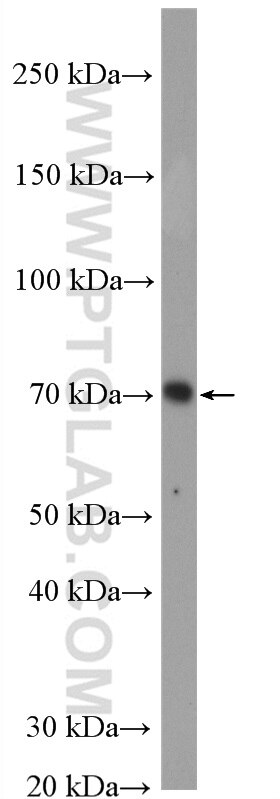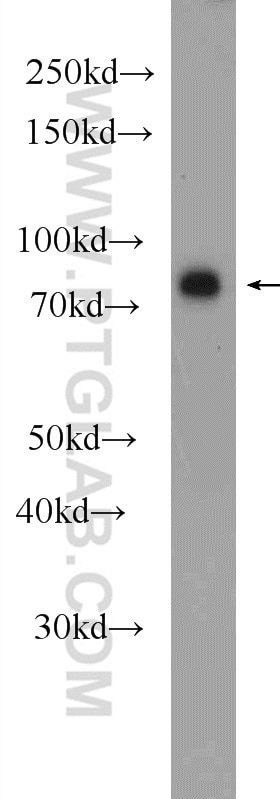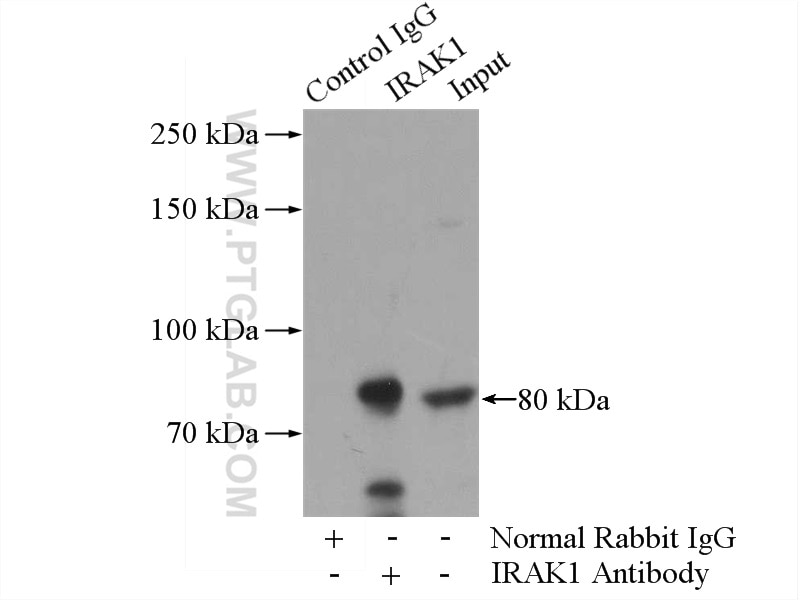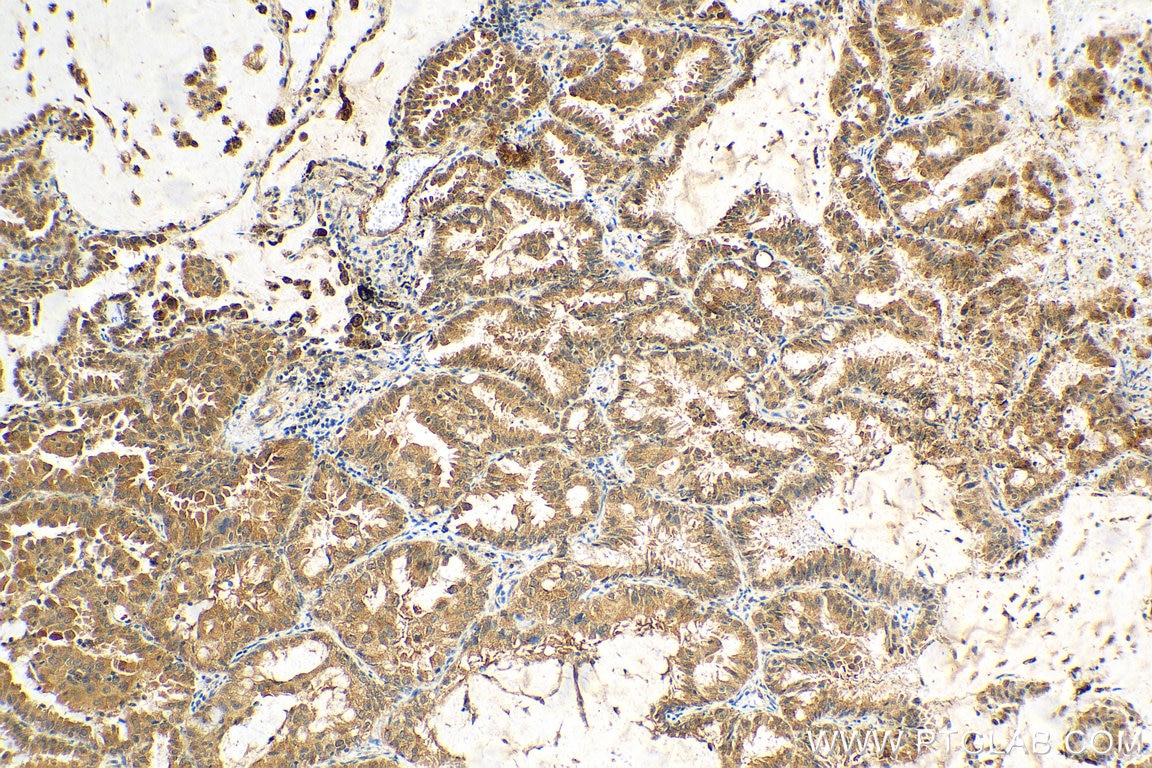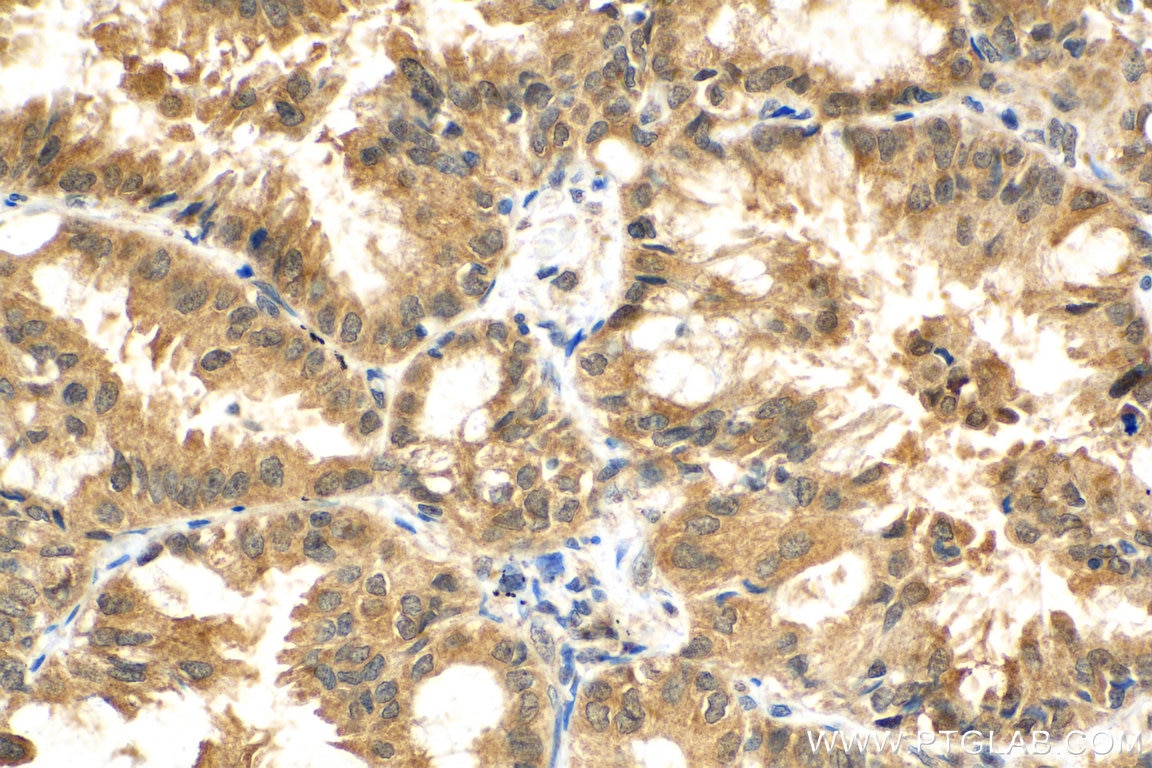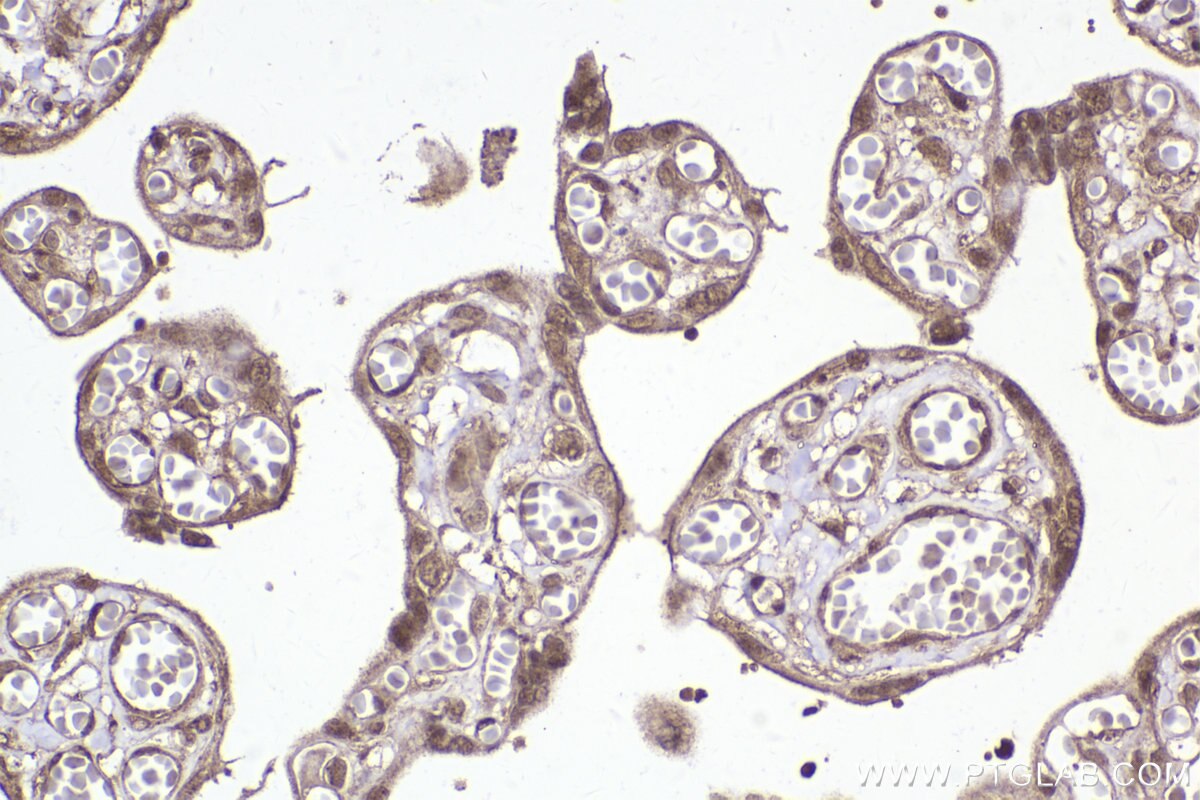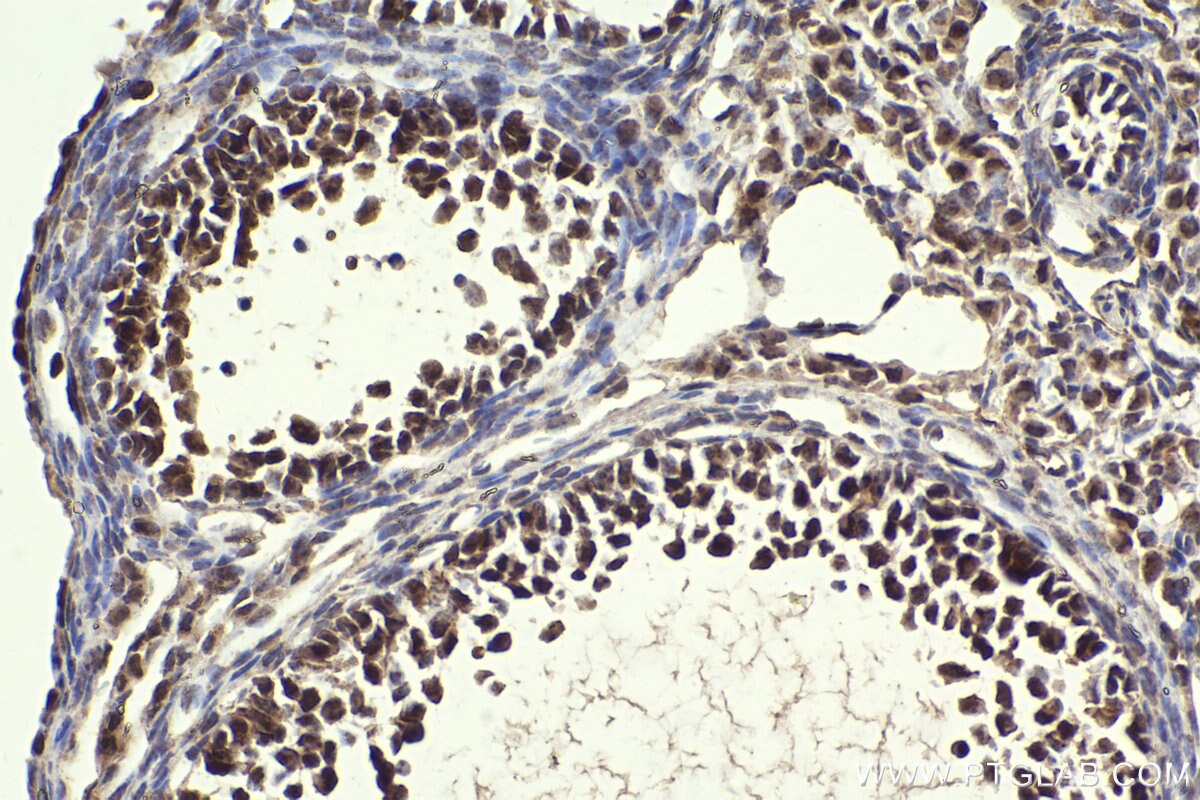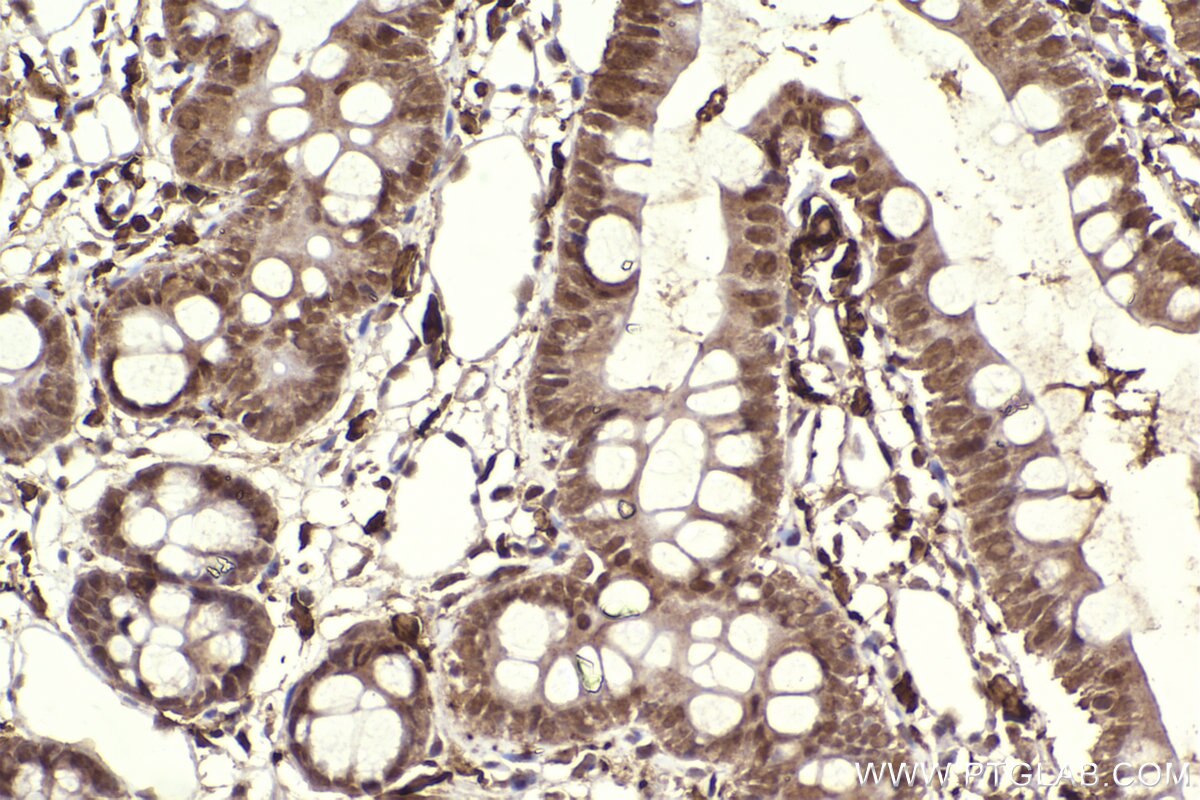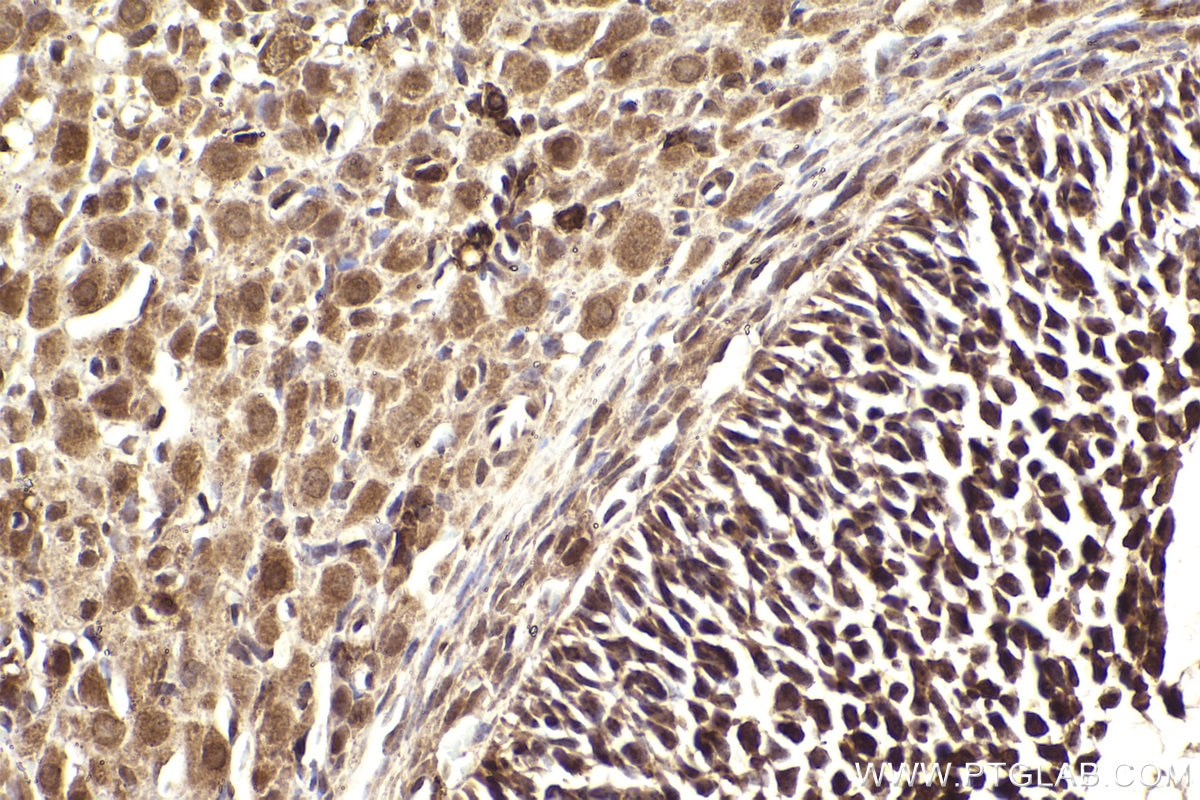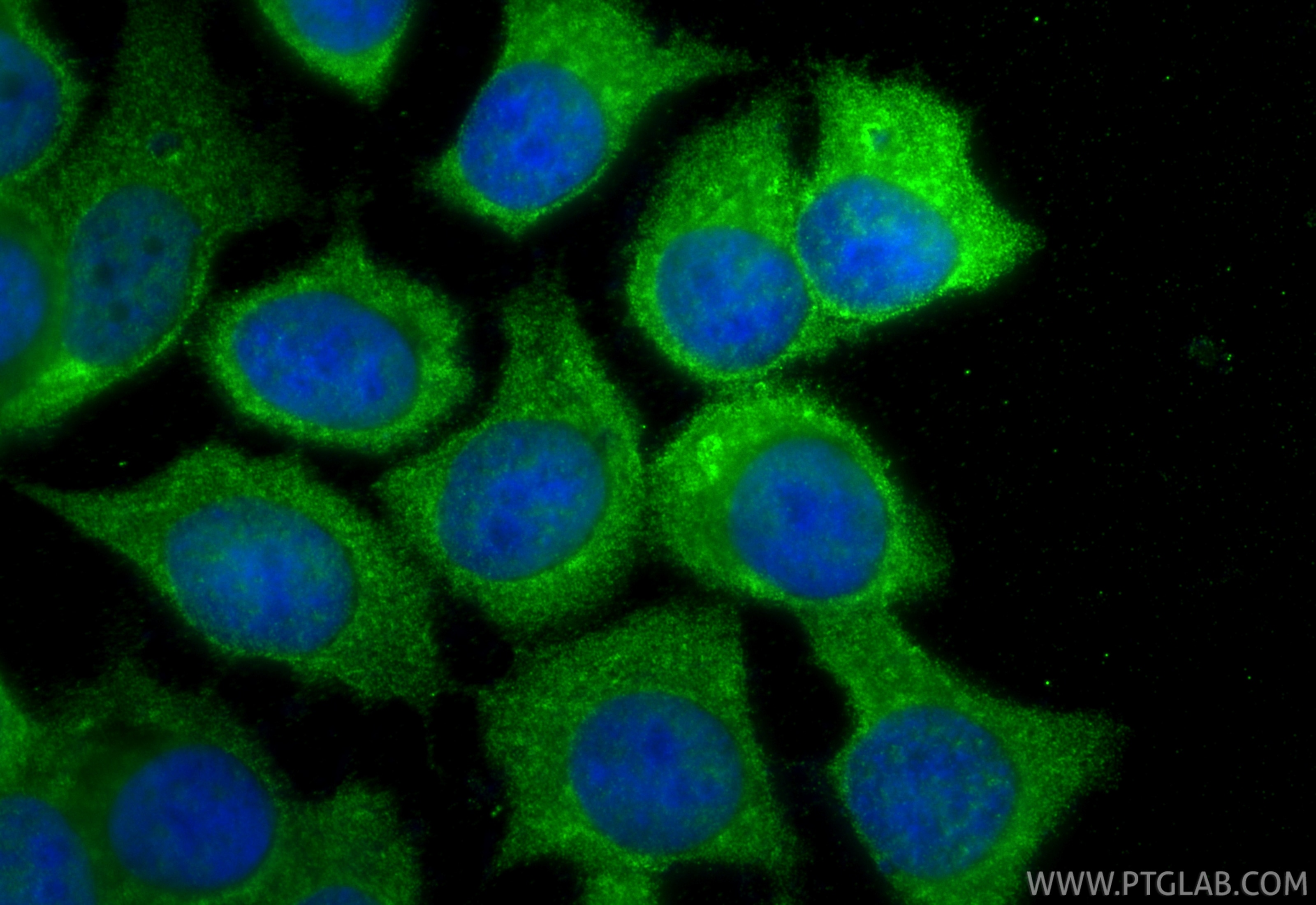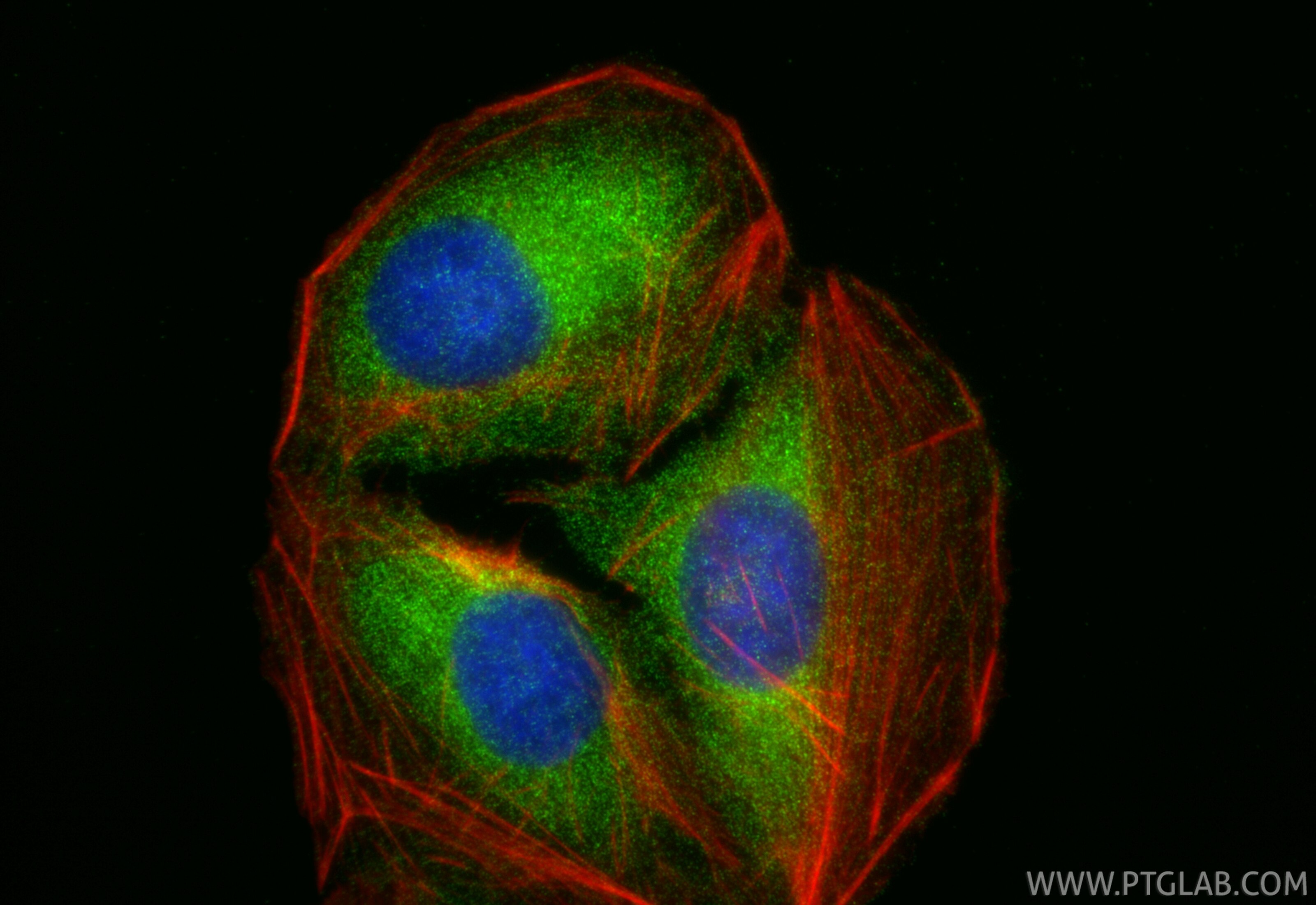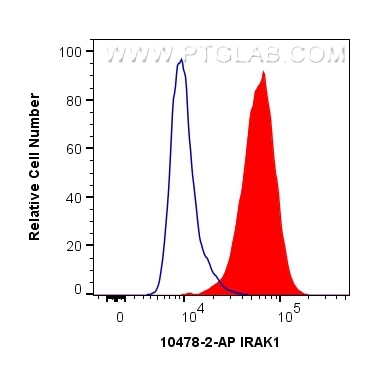Validation Data Gallery
Tested Applications
| Positive WB detected in | A549 cells, PC-13 cells, PC-12 cells, RAW 264.7 cells, HEK-293 cells, HeLa cells, Jurkat cells, K-562 cells, MCF-7 cells |
| Positive IP detected in | HeLa cells |
| Positive IHC detected in | human lung cancer tissue, human placenta tissue, mouse ovary tissue, rat intestine, rat ovary tissue Note: suggested antigen retrieval with TE buffer pH 9.0; (*) Alternatively, antigen retrieval may be performed with citrate buffer pH 6.0 |
| Positive IF/ICC detected in | U2OS cells, MCF-7 cells |
| Positive FC (Intra) detected in | HeLa cells |
Recommended dilution
| Application | Dilution |
|---|---|
| Western Blot (WB) | WB : 1:500-1:3000 |
| Immunoprecipitation (IP) | IP : 0.5-4.0 ug for 1.0-3.0 mg of total protein lysate |
| Immunohistochemistry (IHC) | IHC : 1:300-1:1200 |
| Immunofluorescence (IF)/ICC | IF/ICC : 1:200-1:800 |
| Flow Cytometry (FC) (INTRA) | FC (INTRA) : 0.40 ug per 10^6 cells in a 100 µl suspension |
| It is recommended that this reagent should be titrated in each testing system to obtain optimal results. | |
| Sample-dependent, Check data in validation data gallery. | |
Published Applications
| KD/KO | See 3 publications below |
| WB | See 39 publications below |
| IHC | See 7 publications below |
| IF | See 2 publications below |
| IP | See 1 publications below |
| RIP | See 1 publications below |
Product Information
10478-2-AP targets IRAK1 in WB, IHC, IF/ICC, FC (Intra), IP, RIP, ELISA applications and shows reactivity with human, mouse, rat samples.
| Tested Reactivity | human, mouse, rat |
| Cited Reactivity | human, mouse, rat, sheep |
| Host / Isotype | Rabbit / IgG |
| Class | Polyclonal |
| Type | Antibody |
| Immunogen |
CatNo: Ag0728 Product name: Recombinant human IRAK1 protein Source: e coli.-derived, PGEX-4T Tag: GST Domain: 420-633 aa of BC014963 Sequence: GQRAVKTHGARTKYLVYERLEKLQAVVAGVPGHLEAASCIPPSPQENSYVSSTGRAHSGAAPWQPLAAPSGASAQAAEQLQRGPNQPVESDESLGGLSAALRSWHLTPSCPLDPAPLREAGCPQGDTAGESSWGSGPGSRPTAVEGLALGSSASSSSEPPQIIINPARQKMVQKLALYEDGALDSLQLLSSSSLPGLGLEQDRQGPEESDEFQS 相同性解析による交差性が予測される生物種 |
| Full Name | interleukin-1 receptor-associated kinase 1 |
| Calculated molecular weight | 77 kDa |
| Observed molecular weight | 68-80 kDa |
| GenBank accession number | BC014963 |
| Gene Symbol | IRAK1 |
| Gene ID (NCBI) | 3654 |
| RRID | AB_2126032 |
| Conjugate | Unconjugated |
| Form | |
| Form | Liquid |
| Purification Method | Antigen affinity purification |
| UNIPROT ID | P51617 |
| Storage Buffer | PBS with 0.02% sodium azide and 50% glycerol{{ptg:BufferTemp}}7.3 |
| Storage Conditions | Store at -20°C. Stable for one year after shipment. Aliquoting is unnecessary for -20oC storage. |
Background Information
Interleukin-1 receptor-associated kinases (IRAKs) are a unique family of death domain containing protein kinases that play a key role in initiating innate immune response against foreign pathogens. They are involved in Toll-like receptor (TLR) and interleukin-1 receptor (IL-1R) signaling pathways. IRAK1 is the first member of this kinase family. Upon ligand binding to TLR/IL-1R, IRAK1 is recruited by MYD88 to the receptor-signaling complex, the association leads to IRAK1 phosphorylation by IRAK4 and subsequent autophosphorylation and kinase activation. Hyper-phosphorylated IRAK1 then disengages from the receptor complex, and forms a cytosolic IRAK1-TRAF6 complex. TRAF6 then interacts with TAK and TAB, resulting in eventual activation of the NF-κB and MAPK pathways. Phosphorylated IRAK1 also undergoes ubiquitin-mediated degradation or sumoylation, which results in nuclear translocation and transcriptional activation of inflammatory target genes. (PMID: 17890055; 12620219)
Protocols
| Product Specific Protocols | |
|---|---|
| IF protocol for IRAK1 antibody 10478-2-AP | Download protocol |
| IHC protocol for IRAK1 antibody 10478-2-AP | Download protocol |
| IP protocol for IRAK1 antibody 10478-2-AP | Download protocol |
| WB protocol for IRAK1 antibody 10478-2-AP | Download protocol |
| Standard Protocols | |
|---|---|
| Click here to view our Standard Protocols |
Publications
| Species | Application | Title |
|---|---|---|
Blood Targeting of microRNA-142-3p in dendritic cells regulates endotoxin-induced mortality. | ||
Cell Rep METTL3-mediated m6A mRNA methylation regulates neutrophil activation through targeting TLR4 signaling | ||
J Crohns Colitis A Molecular Targeted Immunotherapeutic Strategy for Ulcerative Colitis via Dual-targeting Nanoparticles Delivering miR-146b to Intestinal Macrophages. | ||
Cell Mol Immunol Virus-inducible IGFALS facilitates innate immune responses by mediating IRAK1 and TRAF6 activation. | ||
Cell Mol Immunol The deubiquitinase OTUB1 augments NF-κB-dependent immune responses in dendritic cells in infection and inflammation by stabilizing UBC13. | ||
Mol Cell Proteomics Quantification of Dynamic Protein Interactions and Phosphorylation in LPS Signaling Pathway by SWATH-MS |

